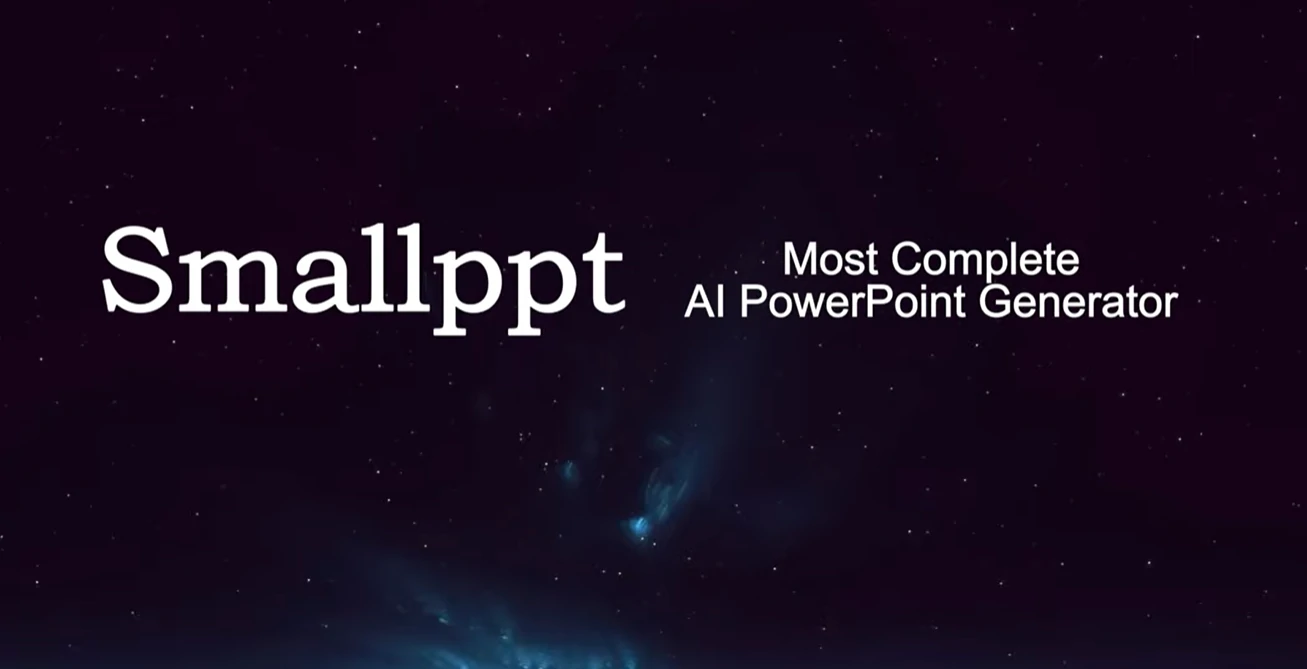
According to The New Yorker, OpenAI's ChatGPT consumes more than 500,000 kilowatts hours of electricity per day to process about 200 million user requests, which is more than 17,000 times the amount of electricity used by U.S. households every day. It has been predicted that by 2027, the entire AI industry will consume 85 to 134 terawatt-hours of
electricity per year, which shows the huge demand for AI technology for energy resources. The input development of AI such as ChatGPT has brought a great deal of convenience to human life. However, the complexity of AI also has certain risks. Artificial intelligence PPT generator is one of the applications of artificial intelligence. It improves the efficiency of people's offices and provides a superior result. In this blog post, we will dive into the mystery of ChatGPT, AI, and AI PPT makers.
What is ChatGPT?
ChatGPT is a new AI technology-driven natural language processing tool from OpenAI, an American artificial intelligence research lab, using the Transformer neural network
architecture. It is a model used to process sequential data with language understanding and text generation capabilities, especially as it will train the model by connecting to a
large number of corpora that contain conversations in the real world.

The pros and cons of ChatGPT:
The pros:
1. Multifunctionality: ChatGPT can answer various questions, provide creative inspiration, support voice recognition and other functions, which can be applied in many fields, such as technical support, intelligent customer service, text generation, etc.
2. Natural Language Processing Capability: ChatGPT has strong natural language processing capability, which can simulate human conversation, express thoughts and feelings, and provide more natural and smooth answers.
3. Multi-language support: ChatGPT supports multiple languages and can meet the language needs of different countries and regions.
4. Intelligent Learning: ChatGPT can learn from a large amount of data to improve its expression ability and answer accuracy, and has certain intelligent learning abilities.
The cons:
ChatGPT is still undergoing continuous development and development, and as a result, there are several shortcomings as well.
1. Possible bias: Since ChatGPT is obtained by learning from a large amount of data, there may be a problem of data bias. This may result in ChatGPT's responses being biased against certain groups or certain points of view.
2. Not humanized enough: Although ChatGPT can simulate human conversations, it still lacks real emotion and humanization, and cannot think and express complex thoughts and emotions like real human beings.
3. Requires a large amount of data: For ChatGPT to have a high answer accuracy and expression ability, it needs to be trained with a large amount of data, which consumes a lot of time and resources.
4. Possible security risks: When using the ChatGPT model, a certain amount of text or voice data needs to be input, which may lead to the risk of personal privacy leakage.

The Current State of Artificial Intelligence:
Development: The current state of AI is marked by significant advancements in various domains. Machine learning techniques, particularly deep learning, have fueled the development of sophisticated AI models. These models can understand, generate, and respond to human language with impressive accuracy. Additionally, AI has found applications in diverse fields in our daily lives. Collaborative efforts between researchers, industries, and governments have accelerated AI development, leading to breakthroughs in areas like computer vision, reinforcement learning, and robotics.
Challenges: Despite remarkable progress, AI still faces some challenges. One major challenge is the ethical implications of AI technology, including issues related to bias, privacy, and job displacement. Ensuring fairness and transparency in AI algorithms remains a critical challenge, as biased models can perpetuate discrimination and inequality. Moreover, the lack of interpretability in some AI systems hinders their adoption in critical decision-making processes. Additionally, there are concerns about AI's impact on employment, with the potential for automation to disrupt traditional job markets and exacerbate socioeconomic disparities.
Future:
Continued research efforts are focused on developing more robust and trustworthy AI systems that can adapt to diverse environments and handle uncertainty more effectively.
Explainable AI techniques aim to enhance transparency and interpretability, enabling users to understand how AI algorithms reach decisions. Additionally, advancements in AI ethics and regulation are crucial for ensuring the responsible deployment of AI technologies. As AI continues to develop, interdisciplinary collaboration and ethical considerations will be essential for harnessing its potential benefits while mitigating risks. The future of AI holds the potential to address some of the world's most pressing challenges.
5 Tips for Being Sensible About AI
1. Correctly recognize the role of artificial intelligence. Artificial intelligence is a powerful tool. It has already brought convenience and innovation in many areas, and these technologies have improved productivity and consumer experience, while also helping humans with tedious tasks. But AI can only be a tool to assist humans. It will not and cannot replace humans.
2. Carefully analyze the pros and cons of artificial intelligence. The development of artificial intelligence comes with opportunities and challenges. It can improve human
productivity and bring humans a more wonderful life. But the incomplete development of artificial intelligence can also bring some harm to human beings, such as information leakage and so on. Therefore, it is necessary to use artificial intelligence appropriately and correctly.
3. Maintain a calm attitude towards artificial intelligence. AI is currently far from completely replacing human beings. Out of the complexity of the human brain, AI will not replace humans either. Therefore, we need to face and think about the value, limitations, and development routes of AI calmly and rationally.
4. Improve your ability and knowledge. As Artificial Intelligence becomes more familiar, more and more positions and industries need people with AI skills and a knowledge base. Therefore, we need to keep learning and updating our skills to adapt to the upcoming era.
5. Pay attention to the future of artificial intelligence. There is no end to the development of technology, and the rise of AI may only be the beginning. We should build a view of the future based on our own understanding of how the development of AI will affect our society, culture, and economy, and look for opportunities in it.
Smallppt provides an easier way to have a PowerPoint
Smallppt's AI PowerPoint is a catalyst for change in the way professionals approach presentations. AI streamlines the process of generating PowerPoint presentations by automating tasks such as summarization and slide generation, allowing users to focus on analyzing and interpreting the content. Smallppt's AI PowerPoint transforms the dull task of presentation creation into a seamless and delightful process. With a focus on design, content, and collaboration, Smallppt ensures that professionals can effortlessly craft presentations that leave a lasting impression.
Learn more in Smallppt!


